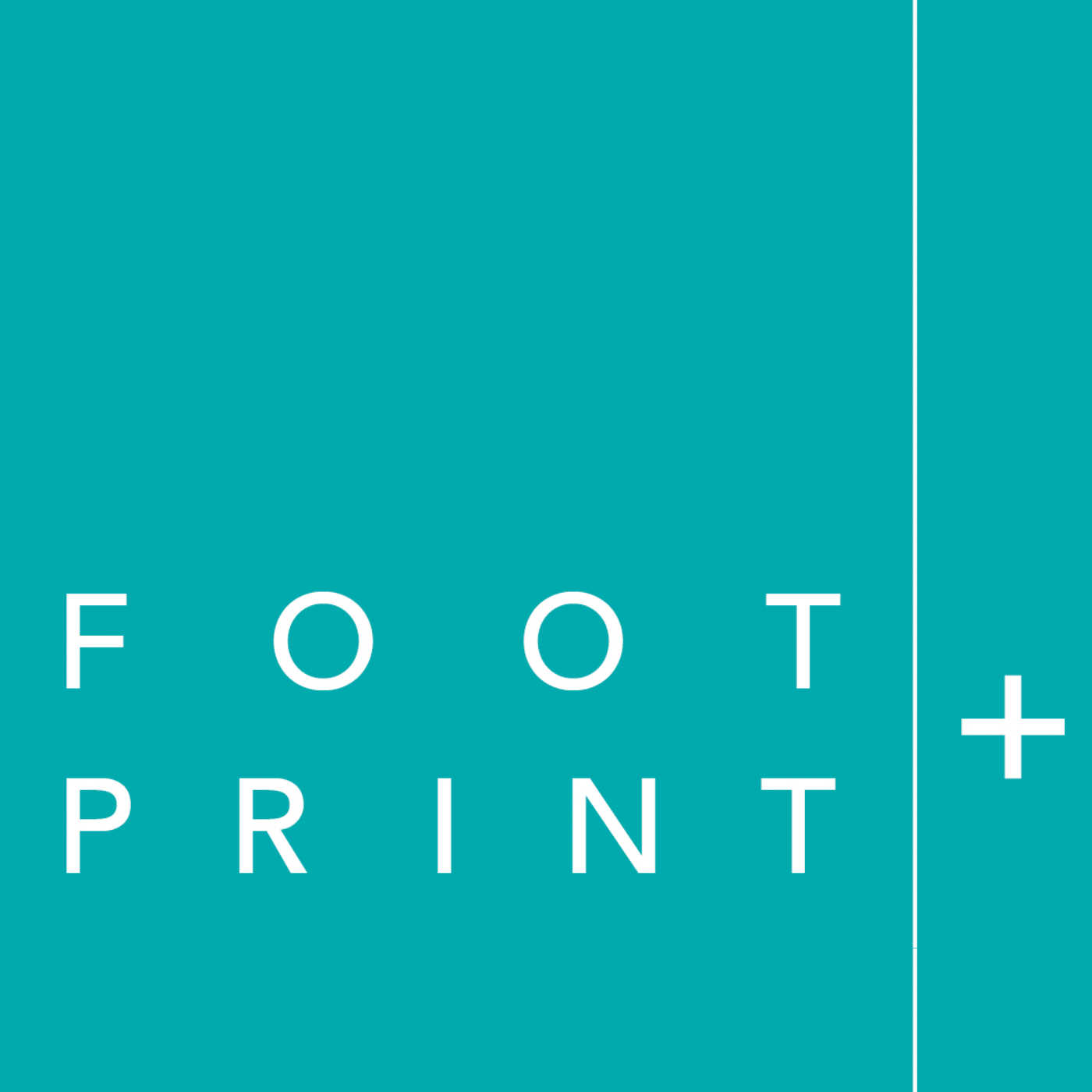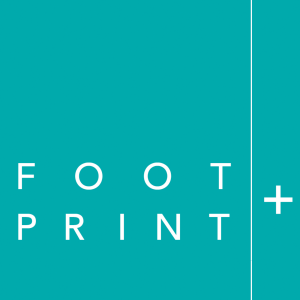
4.9K
Downloads
129
Episodes
We bring the smartest minds in the property carbon-reduction world to FOOTPRINT, so we think it’s only right for us to disseminate all this experience and knowledge freely. Most of what you hear here won’t have been spoken about before; it’s all hot-off-the-press! If you were at FOOTPRINT+ 2025, you can hear all the talks you couldn’t get to while you were in another of our 6 theatres; and if you weren’t, now is your chance to learn why you need to be at FOOTPRINT+ 2026 (and it’s all CPD-approved).
We bring the smartest minds in the property carbon-reduction world to FOOTPRINT, so we think it’s only right for us to disseminate all this experience and knowledge freely. Most of what you hear here won’t have been spoken about before; it’s all hot-off-the-press! If you were at FOOTPRINT+ 2025, you can hear all the talks you couldn’t get to while you were in another of our 6 theatres; and if you weren’t, now is your chance to learn why you need to be at FOOTPRINT+ 2026 (and it’s all CPD-approved).
Episodes

Thursday Sep 18, 2025
Site Innovation: Is low carbon tech leading the way?
Thursday Sep 18, 2025
Thursday Sep 18, 2025
When we’re thinking about emissions in the construction sector, it’s important to address not just what you build, but also how you build it. The drive towards emission-free sites is delivering operational efficiency across the industry, while simultaneously reducing air and noise pollution on construction sites. At 25 Baker Street, a mixed-use development for Derwent London, a combination of diesel elimination, lower carbon plant and smart site management reduced site emissions by >80% versus baseline.
The client, plant and construction team will discuss key technologies such as:
- Flybrid flywheels – used on tower cranes, this innovative technology is adapted from F1, using a flywheel to store energy during “low” periods to use later, reducing fuel use by up to 50%.
- Electric plant was used on site, eliminating the risk of fuel spills, reducing noise and air pollution.
- The potential for electric tools and innovative battery storage to reduce fuel use.
- The use of hydrotreated vegetable oil (HVO) in place of diesel, delivering >90% reduction in emissions.
The panel will discuss the benefits as well as the challenges, and go on to consider how this market may evolve further.


Tuesday Sep 16, 2025
Future of Minimum Energy Efficiency Standards (MEES) for non-domestic buildings
Tuesday Sep 16, 2025
Tuesday Sep 16, 2025
Minimum Energy Efficiency Standards are intended to require incremental improvements to building fabric and services installations in leased accommodation. In preparing revised proposals the team at the Department for Energy Security and Net Zero have taken a wide variety of views into consideration. In this session the team will present
- a review of the objectives of MEES and what they are intended to achieve
- feedback on the findings of the consultation and how stakeholders continue to shape the proposals
- what will take place next to enable the regulation to be determined

Thursday Sep 11, 2025
100 Barbirolli Square: Circularity In Flexible Workspace
Thursday Sep 11, 2025
Thursday Sep 11, 2025
Flexible workspace is an effective solution for growing businesses as their needs evolve, but frequent tenant turnover can lead to increased construction waste. The koba @ 100 Barbirolli Square team tackled this challenge directly by pioneering sustainable, circular materials, ensuring business growth aligns with environmental priorities.
Circularity was embedded at every stage, from establishing the organisation's strategy through to completion. This approach has resulted in a high-quality space showcasing circular solutions, all documented in a material passport.
Consultants Drees & Sommer will explain why circularity was viewed as a crucial component of the business proposition. Cast Interiors will describe how they delivered the circularity objectives outlined in the brief, while circularity platform Madaster will demonstrate how materials passports can both evidence the circularity of selected products and help achieve embodied carbon KPIs.


Tuesday Sep 09, 2025
Building Partnerships, Funding and Momentum for Retrofit and Net Zero
Tuesday Sep 09, 2025
Tuesday Sep 09, 2025
Join us for an insightful panel discussion where experts will explore how they are translating net zero carbon and retrofit ambitions into actionable roadmaps--and linking these to green economic growth opportunities. This event will review exciting recent cases in regional efforts to upscale the pace of delivery of retrofit, net zero and local green skills investments.
Building partnerships, funding and momentum: Our panellists will share valuable recent experience on building and keeping momentum for net zero, discussing partnerships and working across stakeholder groups, addressing the funding gap, and articulating local economic opportunities of net zero delivery.


Thursday Sep 04, 2025
Mass Timber: Capturing the opportunity for the mid-rise market
Thursday Sep 04, 2025
Thursday Sep 04, 2025
CLT buildings up to 18m offer many benefits to developers and end users with extremely low embodied carbon. What factors affect successful outcomes so developers and occupiers to take advantage of these opportunities. This expert panel includes manufacturer, insurer, fire engineer and client and explores:
- early engagement with contractor
- addressing information exchange with the insurance broker
- factors which will allow a more straightforward approach to fire design
- protection from moisture ingress


Tuesday Sep 02, 2025
Holborn Viaduct: Steel innovation and re-use
Tuesday Sep 02, 2025
Tuesday Sep 02, 2025
Holborn Viaduct is a 14-storey, cutting edge workspace development currently under construction for Royal London Asset Management . An open approach between the entire steel supply chain resulted in new solutions, with some aspects already being used on other projects.
Multiplex and BHC, Heyne Tillett Steel worked collaboratively on the column designs to suit steel grade S460, which is 30% stronger than grade S355, enabling a reduction in the size and weight of the sections. With designs for columns at both S355 and S460, HTS and BHC engaged with EMR stocklists to match 87 tonnes of reclaimed steels to columns within the superstructure frame.
The specification of ArcelorMittal electric arc furnace (EAF) over blast furnace steel plus the reclaimed sections have been used within the new frame, along with Xcarb Kingspan decking and fibre reinforcement in place of traditional mesh reinforcement where possible for the composite concrete floor slabs. This combination of innovative solutions has resulted in a reduction from 16,000 to 6,000tCO2.
Together with cement replacement options for the basement box and superstructure slab construction the combination of innovative steel procurement methods has resulted in an overall reduction of 143kgCO2e/m2.


Thursday Aug 28, 2025
The need for a Just Transition in the UK Built Environment
Thursday Aug 28, 2025
Thursday Aug 28, 2025
The concept of a "just transition" in the UK Built Environment is crucial to ensuring that the shift towards sustainability and net-zero carbon emissions is equitable, inclusive, and fair. As the UK government accelerates its efforts to address climate change, the built environment—comprising housing, infrastructure, and commercial properties—must undergo significant transformations to reduce energy consumption, carbon emissions, and waste. However, this transition presents both opportunities and challenges. While green technologies, sustainable design, and energy-efficient practices are critical to achieving climate goals, the workforce and communities involved in these sectors must be supported to ensure that no one is left behind.
Our expert panel asks what does this mean for the divers stakeholders in the property industry?


Thursday Aug 21, 2025
PACER: Planning Application Carbon Evaluation and Reduction Platform
Thursday Aug 21, 2025
Thursday Aug 21, 2025
When awarding the PACER initiative funding the UKRI declared that ’the majority of the UK’s national emissions budget will be used in the Built Environment’. Local Planning Authorities (LPAs) are increasingly the only gatekeepers to lower whole life carbon in the built environment with the ability to set targets and decide which projects are permitted. PACER is a software tool designed to be operated by LPAs to assess the carbon documentation submitted with applications and to guide officers in the analysis of those proposals.
Aiming to make the decision-making transparent and democratically sound, PACER has been tested since its launch early 2025 during the assessment of a range of proposed projects. The panel will discuss how it works, the characteristics of the submission requirements and early outcomes found by its development partner Westminster City Council. In aiming to implement Retrofit First policies, how have the planning authority explored these digital tools and could this be a mechanism adopted by authorities around the UK?
The panel will feature Hrabrina Nikolova, Principal Sustainability Officer at Westminster City Council, alongside representatives from Preoptima and developers who have taken part in the pilot applications, who will discuss PACER’s potential as a nationwide mechanism for carbon assessment.


